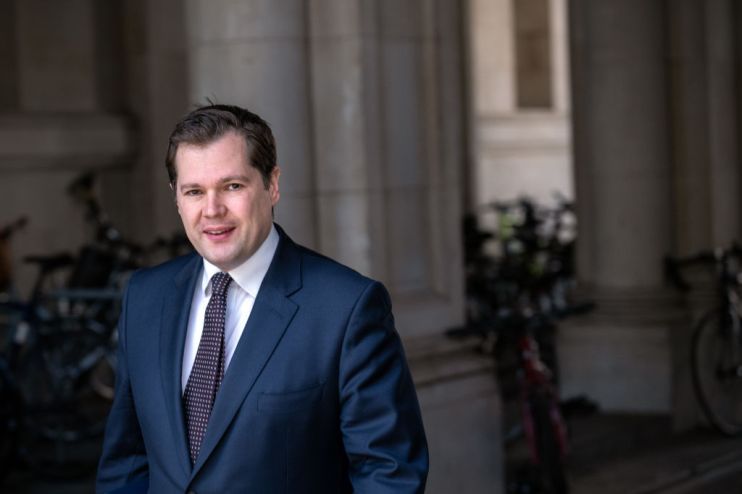Explainer: The British circus around Europe to strike migration deals

Not many people would expect to spend their Friday morning scrolling through Robert Jenrick’s Instagram account. For those who don’t know him, he’s the Minister for Immigration, Suella Braverman’s right-hand man.
Jenrick doesn’t like migration very much – and has made that clear through various statements of various tastelessness. He claimed that “uncontrolled migration threatens to cannibalise that compassion that marks out the British people” and said that because they have different “lifestyles and values”, immigrants undermine the “cultural cohesiveness” of British communities.
No wonder Jenrick is besties with Giorgia Meloni, the Italian prime minister who has warned her country faces “an invasion” of migrants this summer. Their picture together, published in April on Jenrick’s feed, sees them looking at each other with affinity while they recommit their countries to work closely together “to tackle the shared challenge of illegal migration”.
Jenrick was rubbing shoulders with Italian politicians again this week, as he embarked on a tour of the Mediterranean to forge new partnerships to fight illegal migration. The government didn’t disclose much of his trip to Italy, but thanks to social media we know Jenrick met with his counterpart Nicola Molteni and went to say hello to the Italian Coastguard. He’s now heading to France.
Jenrick previously went to Algeria and Tunisia to try to establish closer collaborative relationships on tackling illegal migration. The British government is worried that among the many people who will try to escape poverty or war from Africa this summer, trying to reach and pass through countries like Tunisia and Italy, many will end up on a journey in the Channel to reach the UK. So the government is trying out a new strategy, offering these Mediterranean countries resources to tackle the “smuggling gangs at their source”.
Officers from the British National Crime Agency will also work more closely with their counterparts in northern Africa to share information and help identify the smugglers.
As Jenrick was cosying up to the Med countries, prime minister Rishi Sunak was also on a migration campaign around Europe this week. He went to the second summit of the European Political Community in Moldova where he found more than 40 European leaders – so many potential opportunities to strike migration deals! Out of all of them, he chose Georgia – hardly the home country of most people travelling to find shelter in the UK.
Yet Sunak managed to strike an unusual deal, through which the UK will be allowed to return not only all illegal Georgian arrivals, but also all of those who have travelled through Georgia to reach the UK illegally, regardless of their nationality. The final aim is to replicate this deal with an increasing number of countries – a sort of slightly different Rwanda deal through the back door.
The government has got one thing right here: the migration question can’t be solved by one state alone, it calls for cooperation among states. It’s the issue that’s been plaguing EU member states, together with the question of redistribution. But this twofold effort to go to countries all over Europe and talk tough on migration feels performative. It might gain a couple of political nods, but it’s just another piece of the puzzle of the government’s crooked “hostile environment” policy.
To control migration flows, the only ever sensible long-term policy is to tackle the factors that force people to leave their homes. But why think hard about the causes of poverty and war in Africa and the Middle East when migration deals are just an Instagram like away?